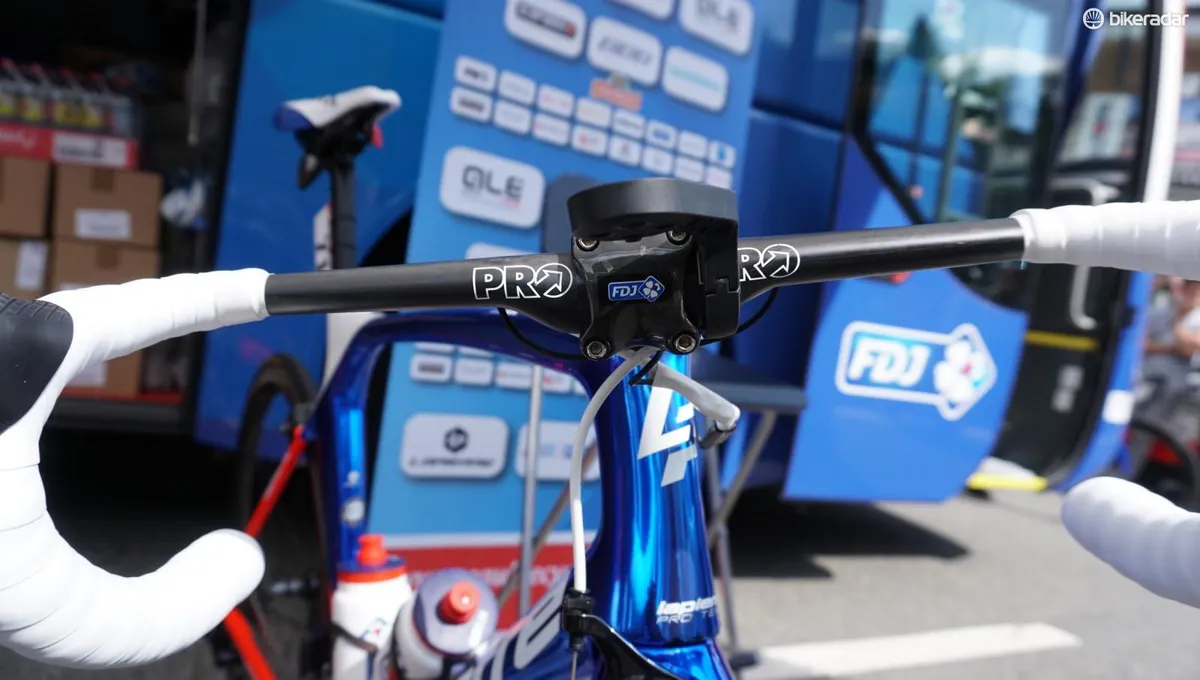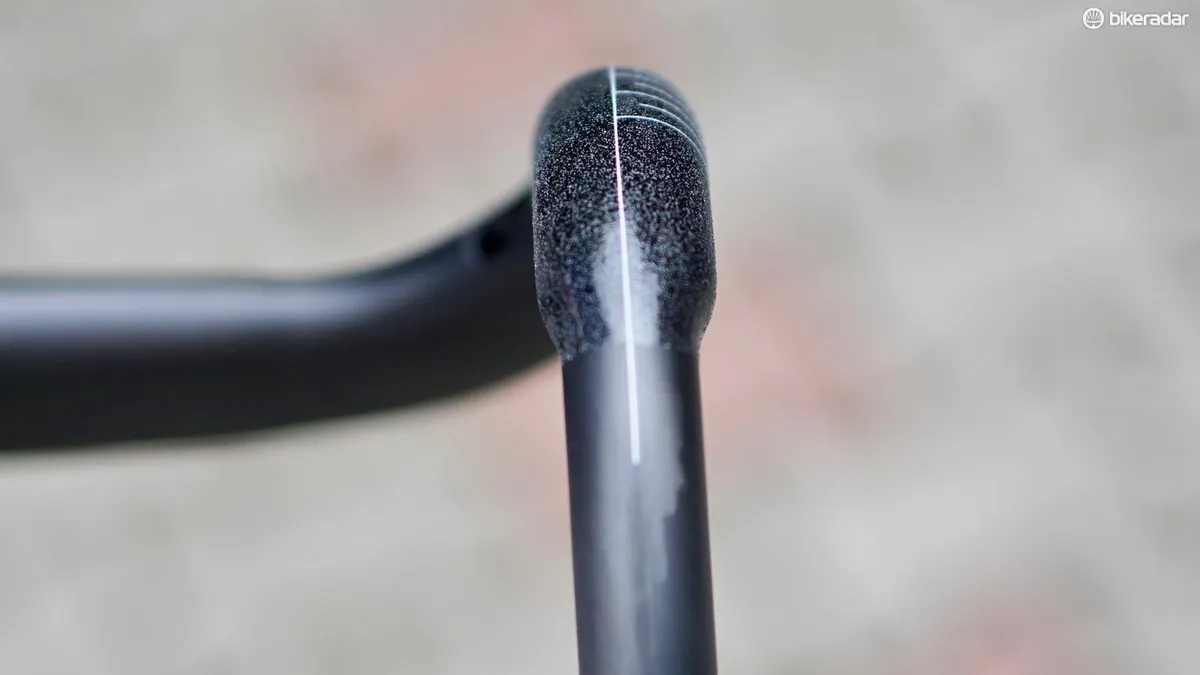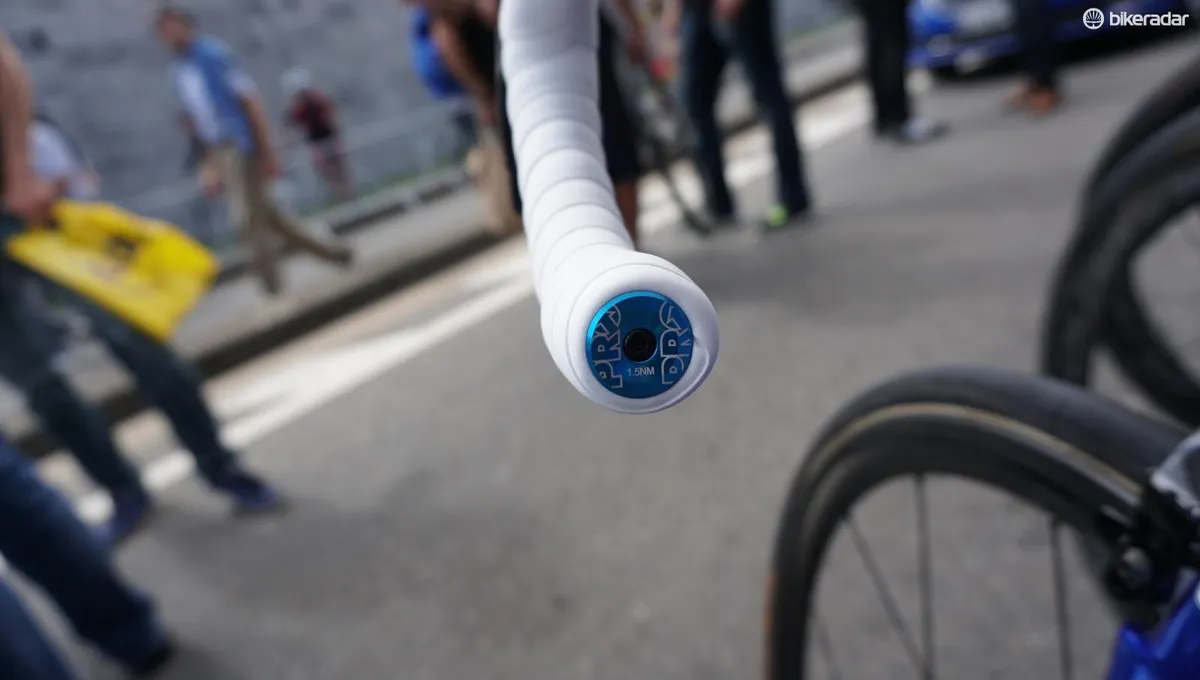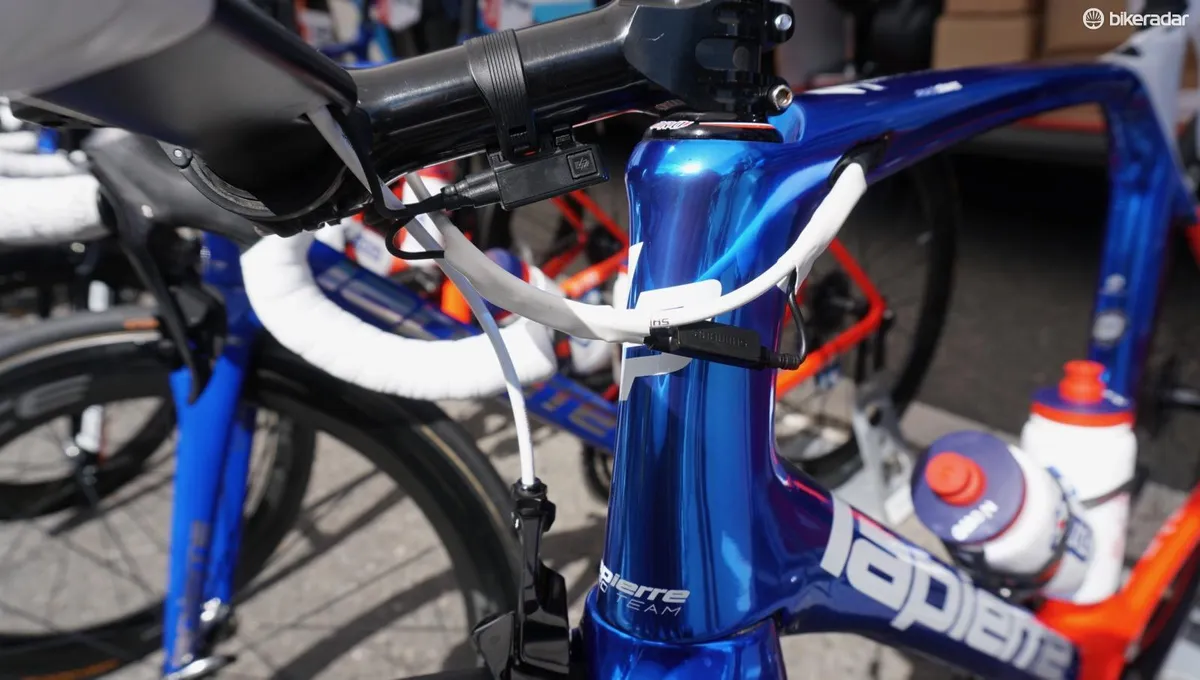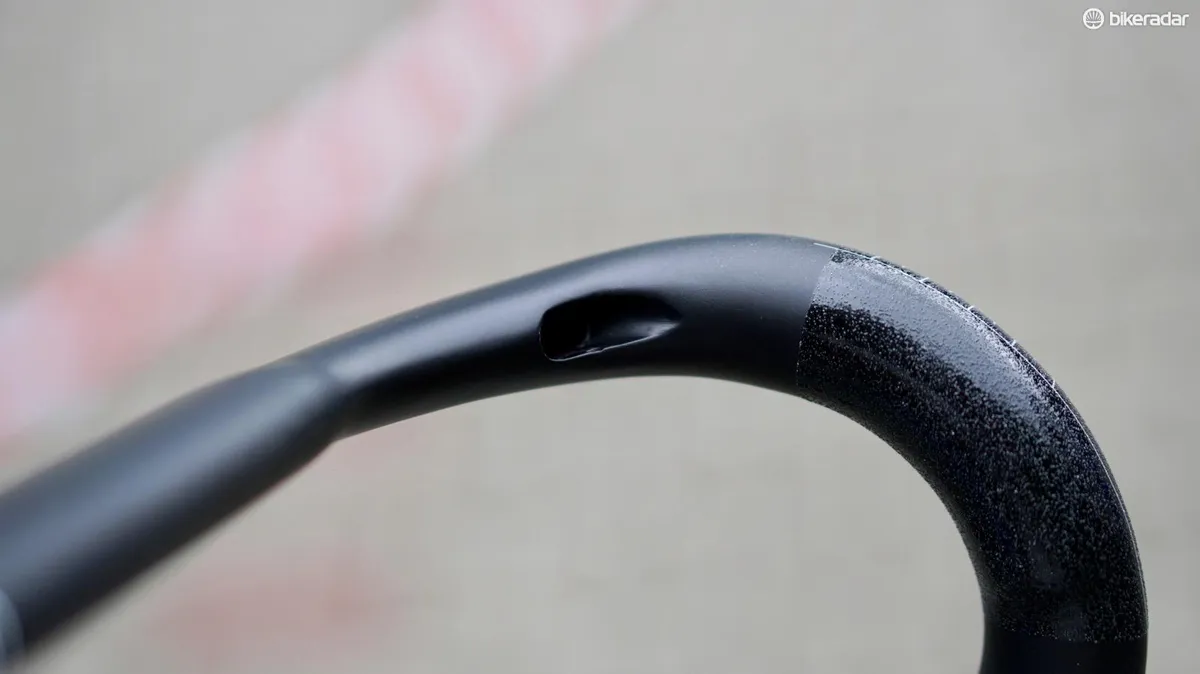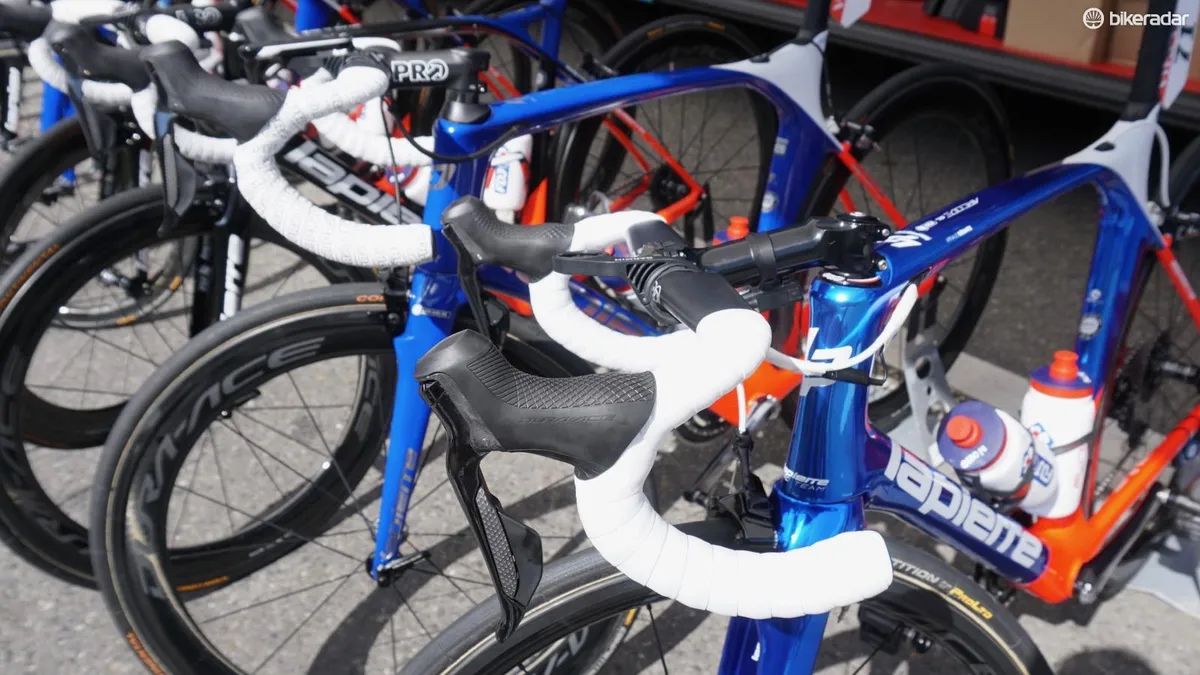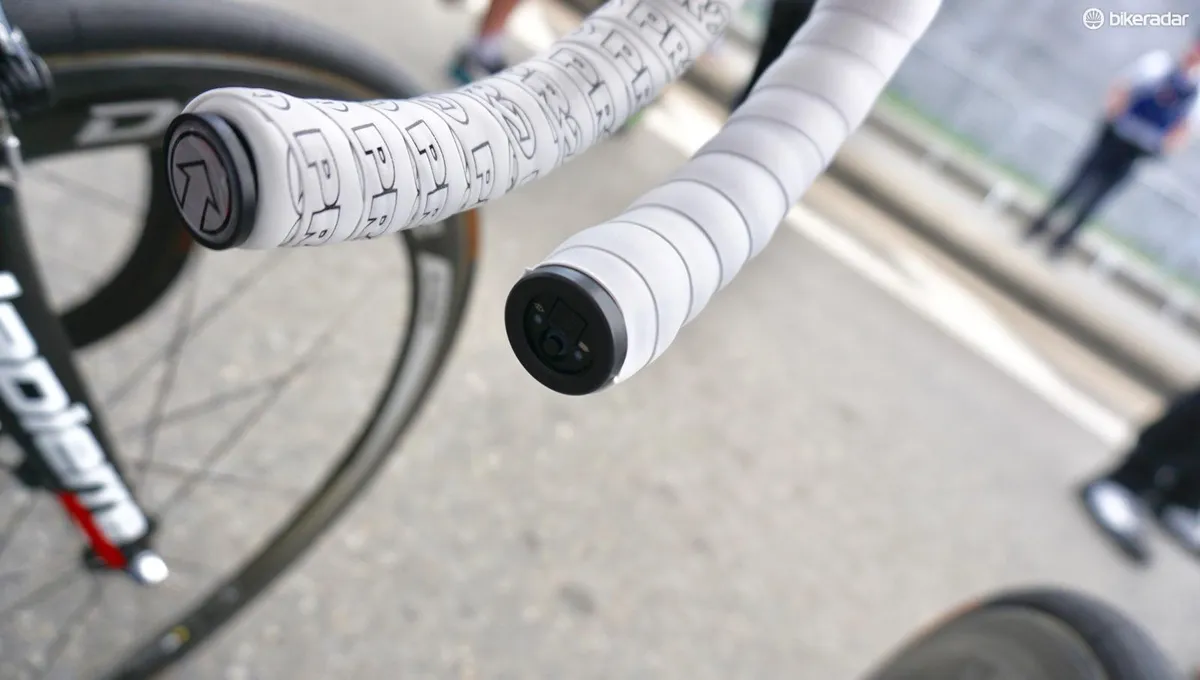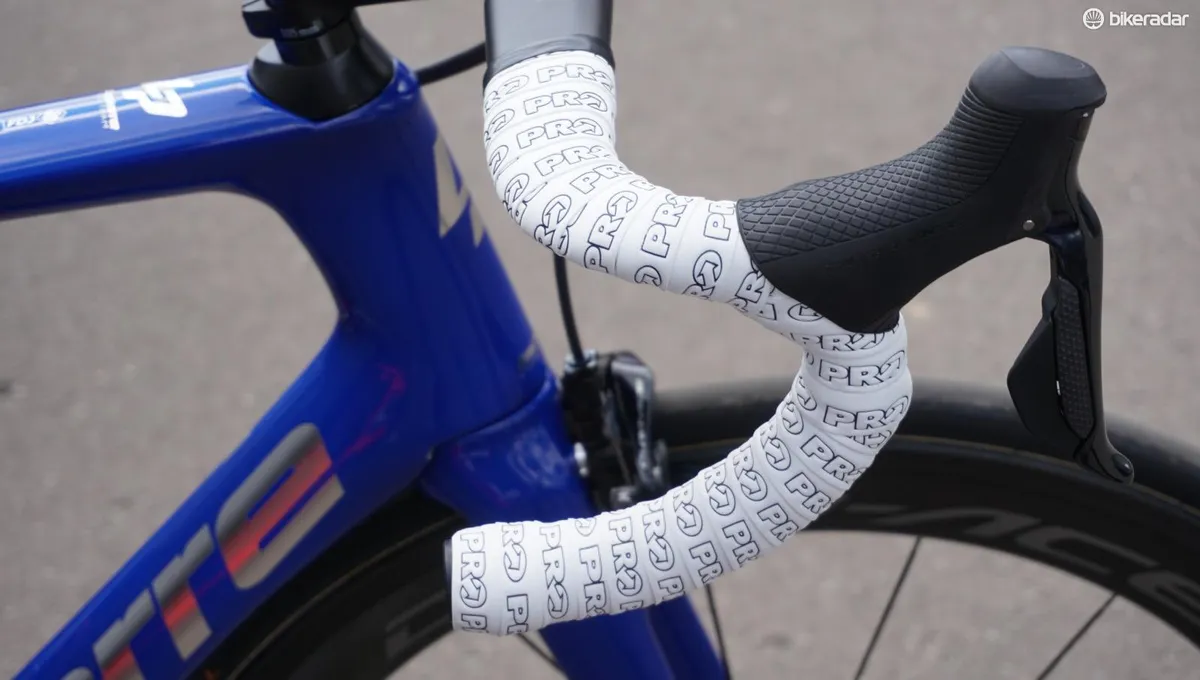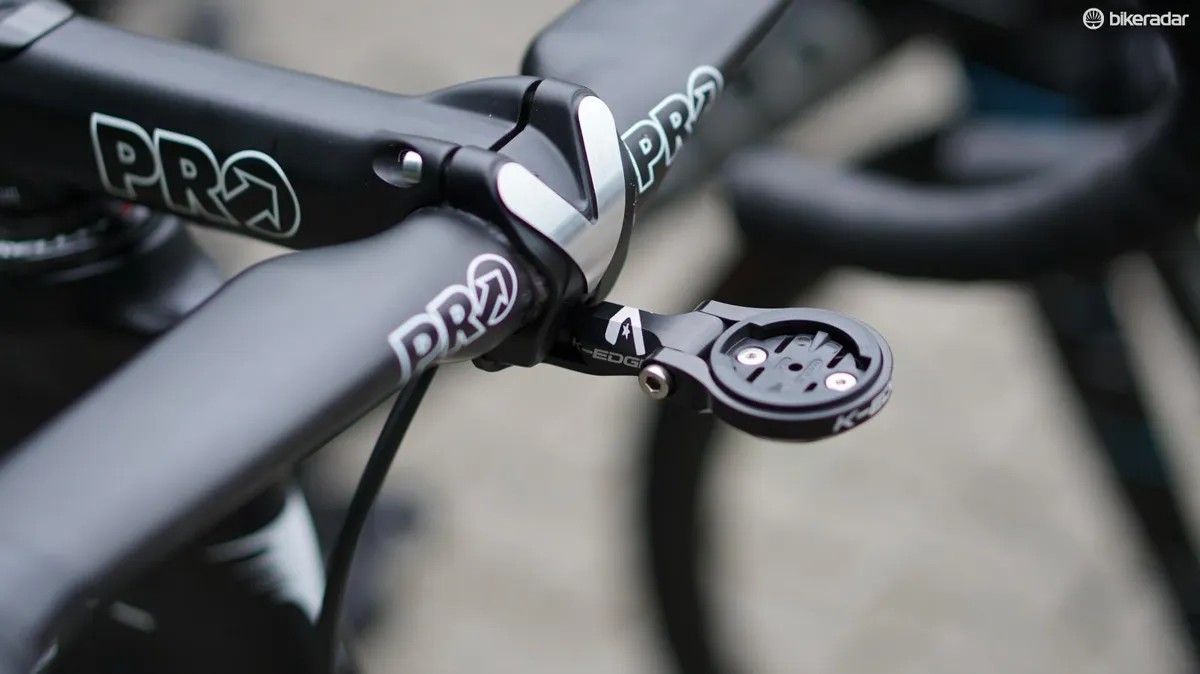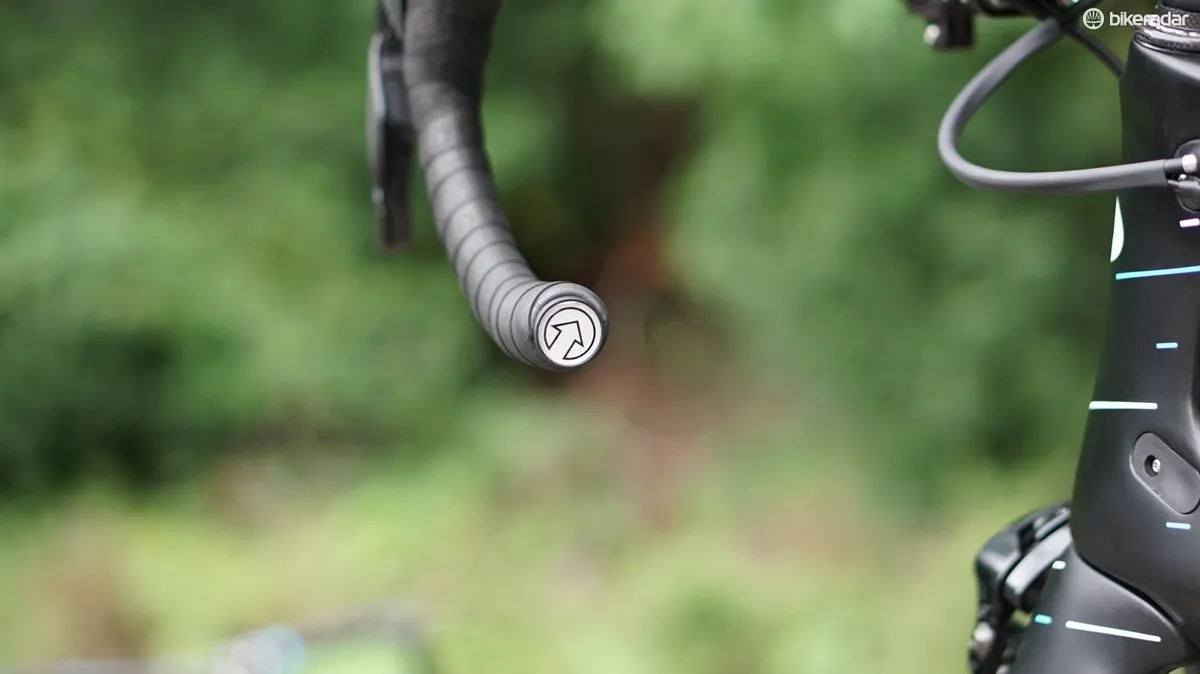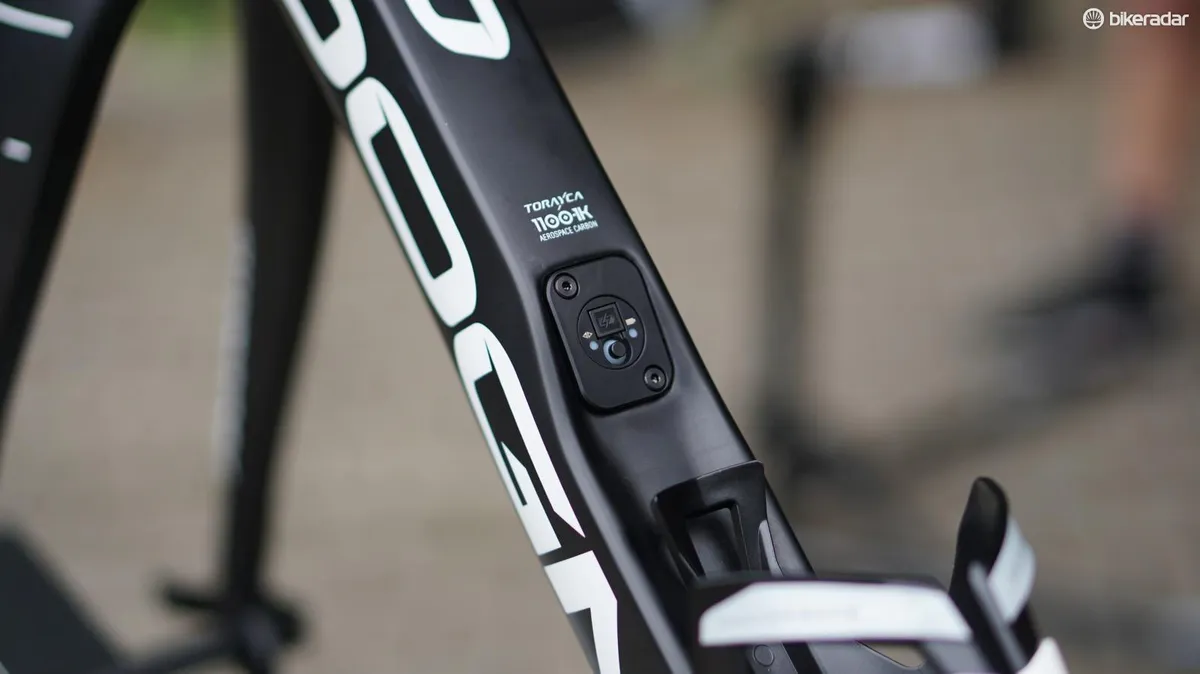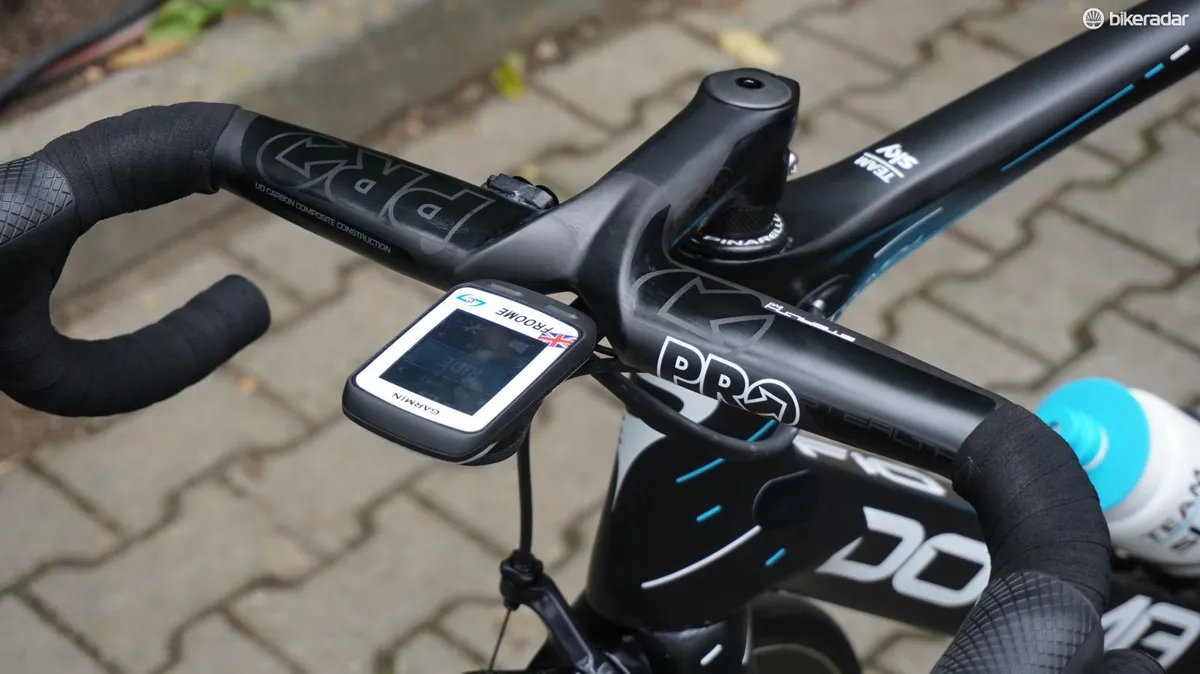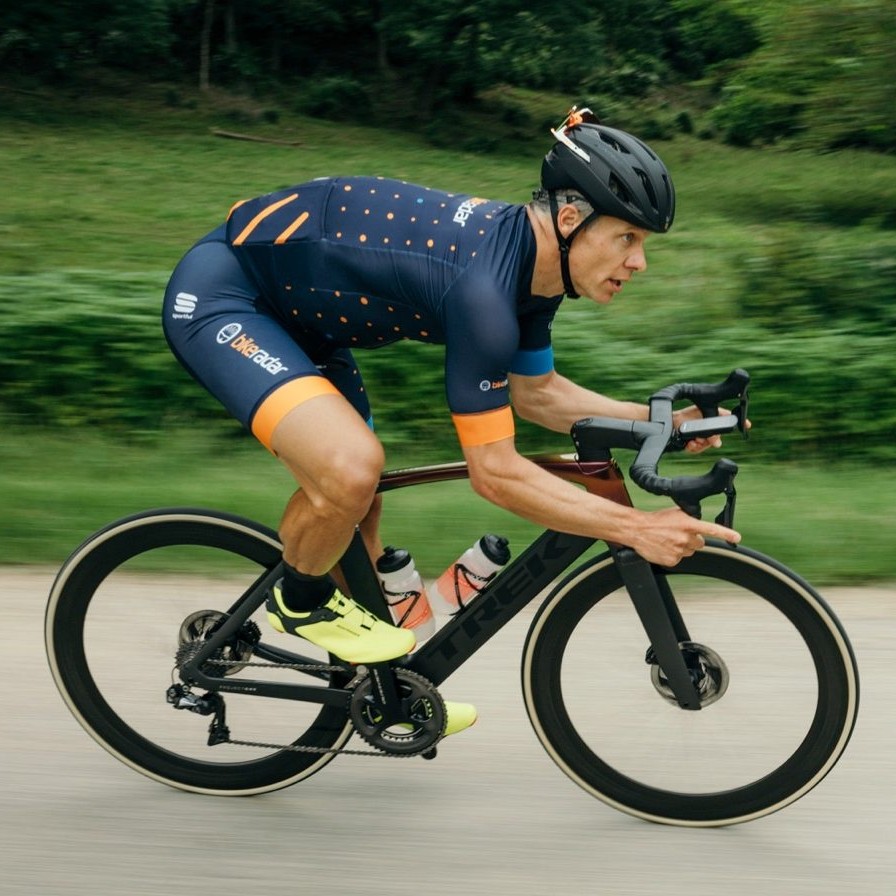While Peter Sagan's ejection was the big story at the Tour de France today, FDJ's Arnaud Démare was still plenty pleased to win the sprint finish, and Shimano staff were happy to see him do so on its new PRO Vibe Aero handlebar.
- Shimano Dura-Ace 9100 and 9150 — all you need to know
- Sagan's speedy silver S-Works Tarmac
- Tour de France bikes, gear and tech
While a number of aero bars feature internal routing, the PRO Vibe Aero bar is also configured for Di2 with a hole at the bottom center of the bar. The Vibe Aero also features ovalized drop sections that — when unwrapped — present a narrower frontal profile to the wind than a normal bar.
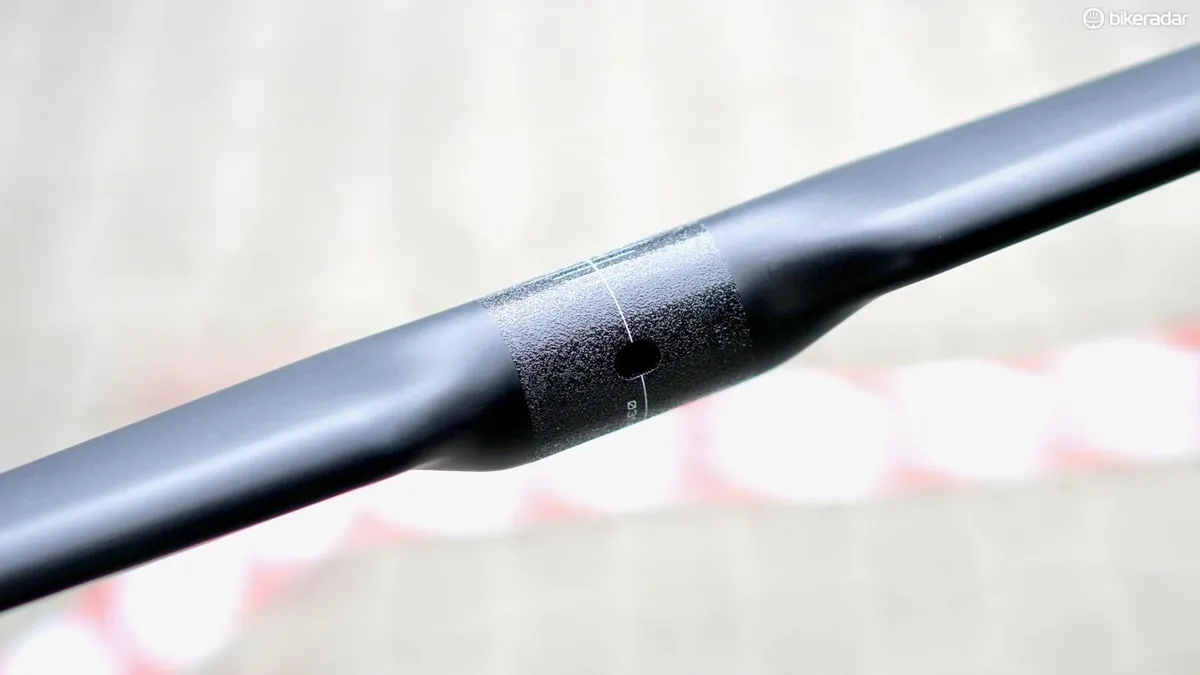
Wrapping any bar with handlebar tape of course changes the aerodynamics a bit. Engineers of aero bars with flat tops are often dismayed when pros choose to run tape around the flattened top section, hampering some of the aero gains that the engineers worked for. But there is usually a compromise on bikes between engineering ideas and real-world application.
Interestingly, Démare has not one but two layers of bar tape on the narrow drops. While a few riders like Alberto Contador run double tape all the time, typically we only see the double thickness on riders' bikes at Paris-Roubaix.
Another strange visual on Démare's long-and-low aero cockpit is the rather enormous Garmin Edge 1000 computer that the whole FDJ team uses. It is a very good computer for navigation, but no one has ever claimed it to be the sveltest option on the market.
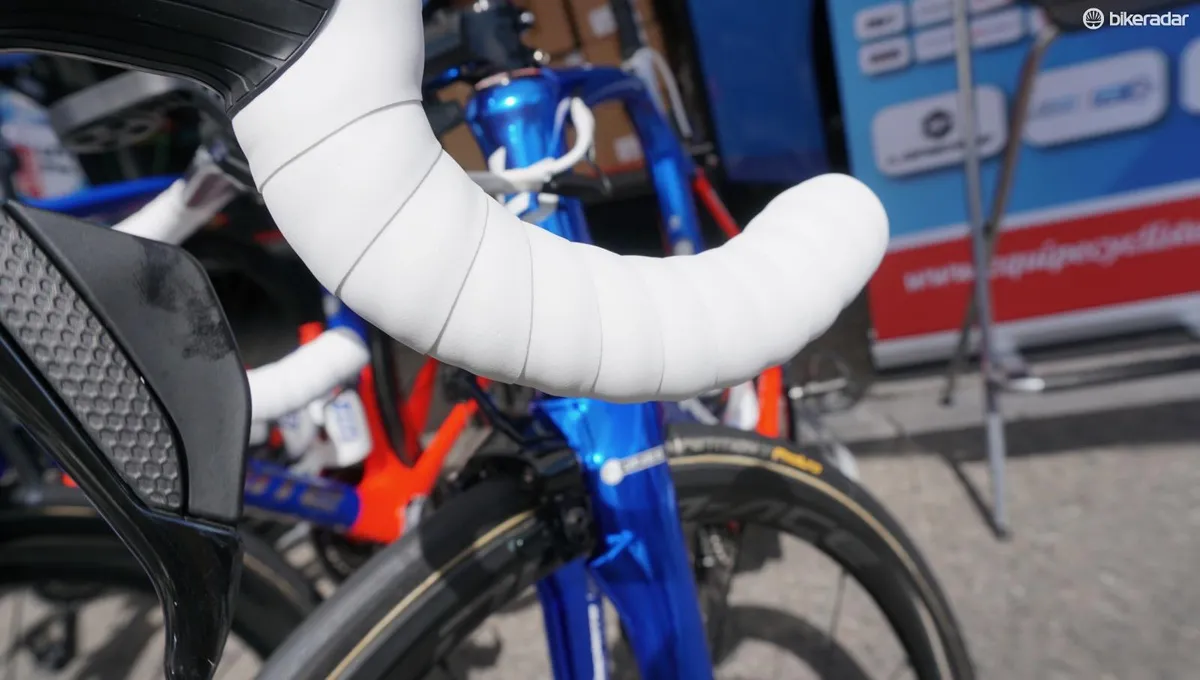
Five holes on the PRO Vibe Aero
Besides the obvious holes at the ends of the bars (which can house the new Di2 junction box), the Vibe Aero has five holes. On each side of the bar there is a hole behind where the shifters are mounted to take in brake and shift lines underneath the bar tape. Then closer to the center of the bar there are holes where these lines pop out. Finally, there is a hole in the center of the bar.
Shimano Europe sports marketing officer Bert Roesems said such a design could only be executed in carbon.
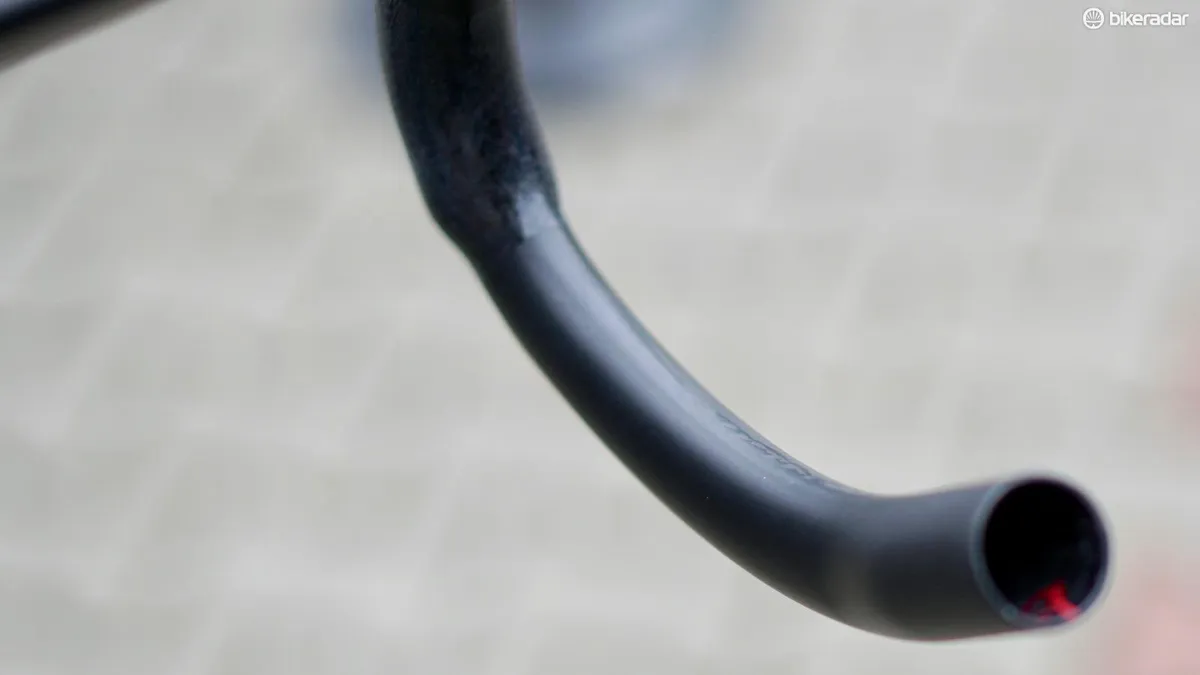
"With carbon, you can make as many holes as you want," Roesems said. "With alloy, you just can't make holes like that [without compromising structural integrity], especially where it connects with the stem. That area is the worst."
When paired with a new PRO Vibe stem, a Di2 wire can run from a junction box mounted inside one of the bar ends, through the bar, and pop out just behind the bottom of the stem faceplate.
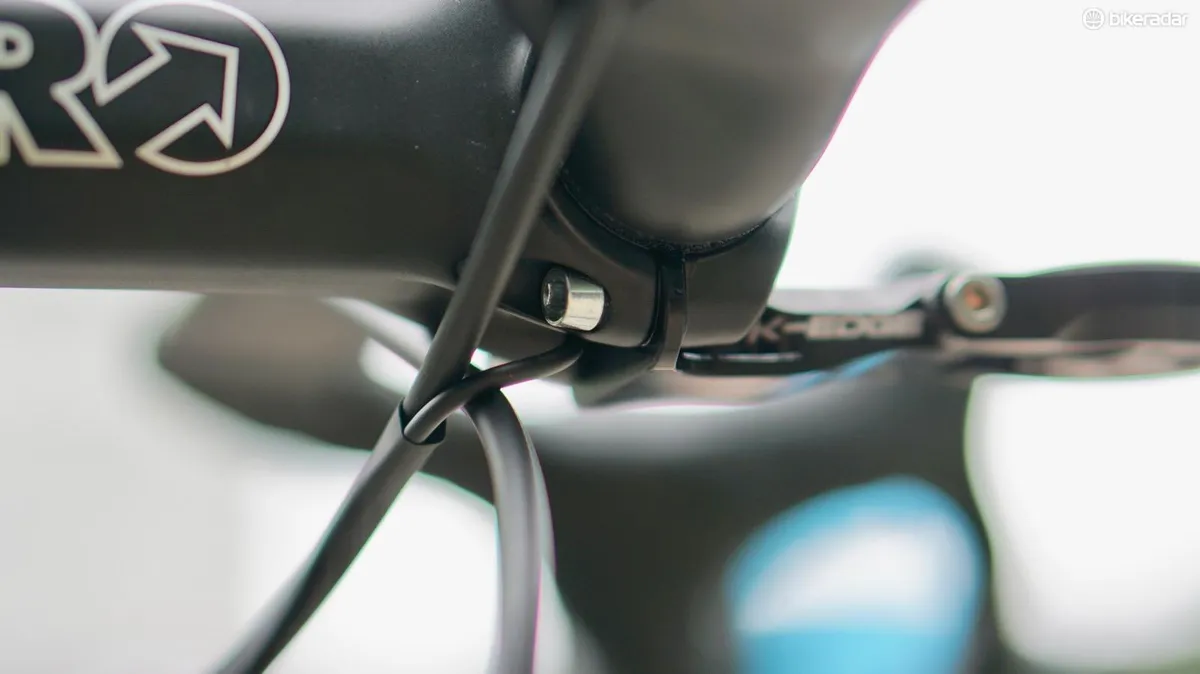
Démare doesn't use a PRO Vibe stem, though, instead running an unmarked -17 FSA model to get a low position. So, on his bike, mechanics run the Di2 wires from each shifter through the bar and then out alongside the brake cables. They then attach to the old-style junction box rubber-banded to the stem, the way the first Di2 systems were configured.
Démare's teammates have the new Vibe stem, however, and some are using the bar-end-mounted junction box.
Team Sky's Christian Knees has the new Vibe Aero, new Vibe stem and bar-mounted junction box on his bike. He also has a trick new K-Edge mount for his bike.
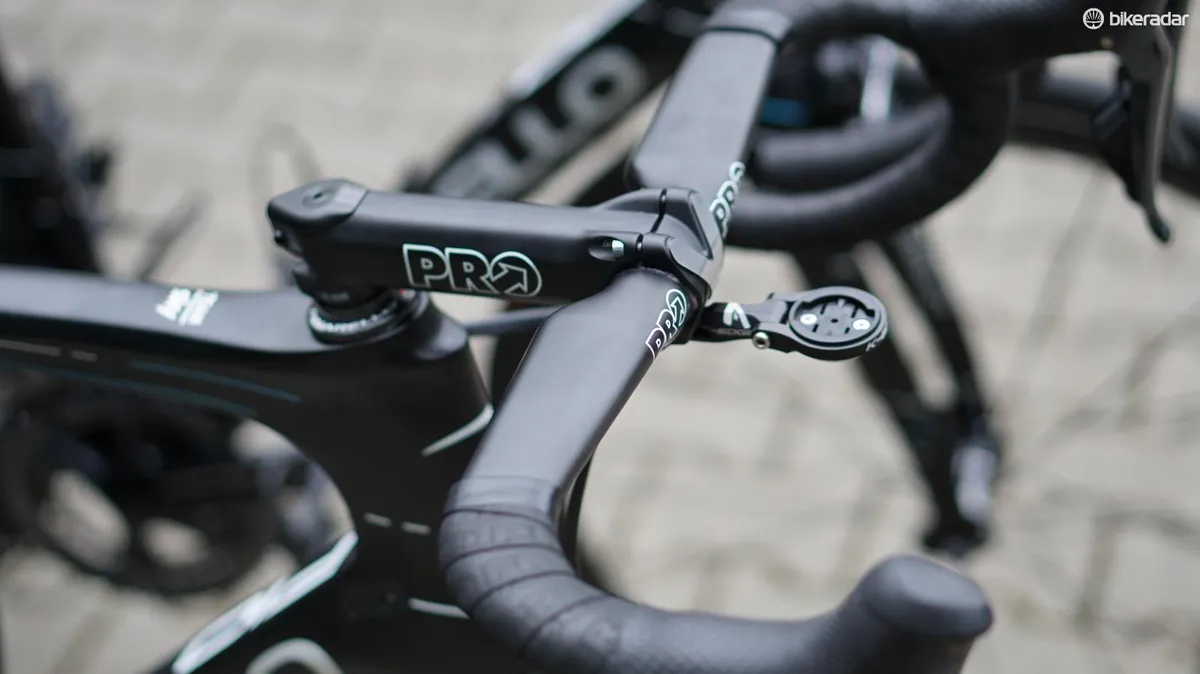
Sky's leader Chris Froome has been using PRO's Stealth Evo integrated bar/stem for some time now.
Click through the gallery above for a closer look, and be sure to visit Cyclingnews throughout July for full coverage of the 2017 Tour de France.

